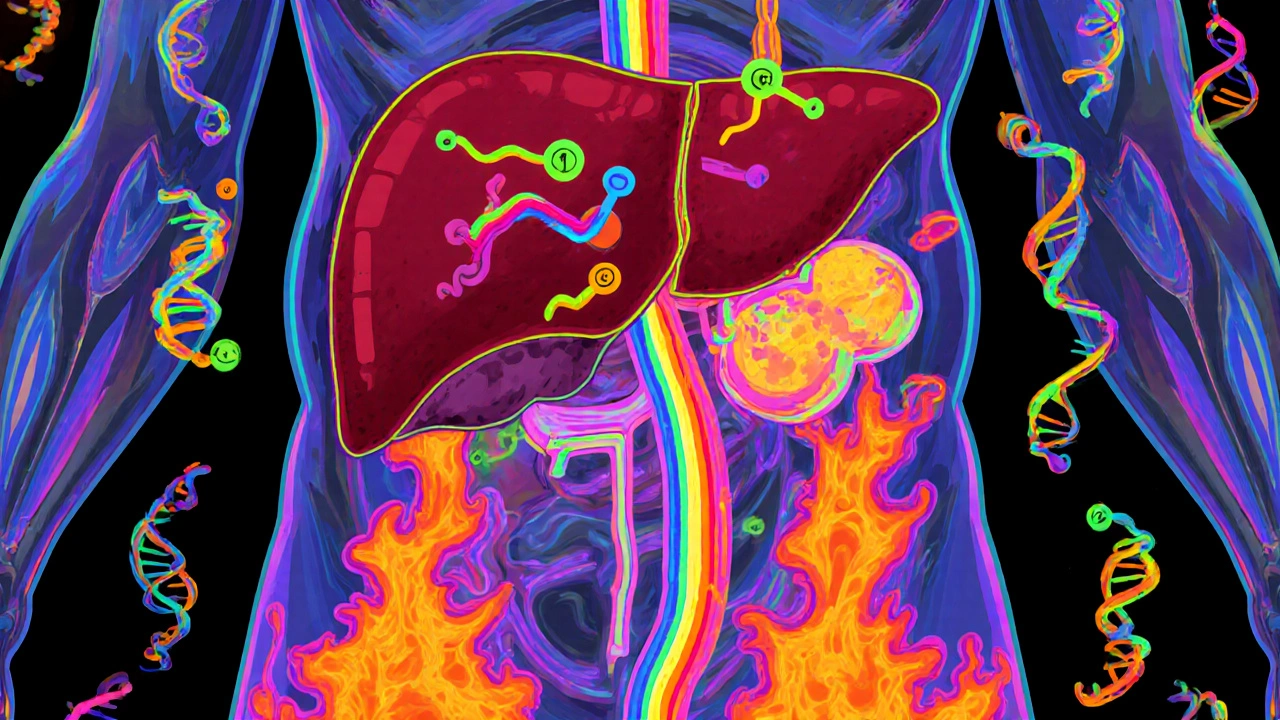SLCO1B1 Gene: How It Affects Statins, Muscle Pain, and Drug Response
When you take a statin for cholesterol, your body doesn’t treat it the same way as the person next to you. That’s because of the SLCO1B1 gene, a gene that controls how your liver absorbs certain drugs, especially statins like simvastatin and atorvastatin. Also known as the organic anion-transporting polypeptide 1B1, this gene acts like a gatekeeper — deciding how much drug enters your liver and how fast it gets cleared. If your version of this gene has a common variation, you could be at higher risk for muscle pain, weakness, or even a rare but serious condition called rhabdomyolysis — even on a normal dose.
The SLCO1B1 gene, a key player in pharmacogenomics — the study of how genes affect drug response doesn’t just matter for statins. It also influences how your body handles other medications, including some antibiotics, antifungals, and even certain cancer drugs. People with the CC variant of the SLCO1B1 gene (the most common) usually process statins fine. But if you have the TT variant, your liver can’t pull the drug in efficiently, causing it to build up in your blood and hit your muscles harder. This isn’t rare — about 1 in 5 people carry this higher-risk version. That’s why some doctors now order a simple genetic test before prescribing high-dose statins, especially for patients with a history of muscle pain.
This isn’t just theory. Studies from the Mayo Clinic and the FDA show that people with the high-risk SLCO1B1 variant are up to 4.5 times more likely to develop severe muscle side effects on simvastatin. The good news? You don’t have to suffer through it. If your genes point to higher risk, your doctor can switch you to a statin that doesn’t rely as much on this transporter — like pravastatin or rosuvastatin — or lower the dose. You might also avoid risky combinations, like taking statins with certain antibiotics or grapefruit juice, which can overload the system. And if you’ve had unexplained muscle pain on statins before, your SLCO1B1 status could explain why.
What you’ll find in the posts below is a practical mix of real-world stories and science-backed advice. You’ll see how SLCO1B1 links directly to statin muscle pain, why some people can’t tolerate certain drugs, and how genetic testing is quietly changing how meds are prescribed. You’ll also find comparisons of statin alternatives, tips on managing side effects, and guidance on when to ask your doctor about genetic testing. This isn’t about complex biology — it’s about making sure your meds work for you, not against you.
Genetic Factors in Statin Tolerance: How Pharmacogenomics Testing Can Help
Genetic testing for SLCO1B1 variants can identify people at high risk of statin-induced muscle pain, helping doctors choose safer alternatives like pravastatin instead of simvastatin. This precision approach improves adherence and heart health.






